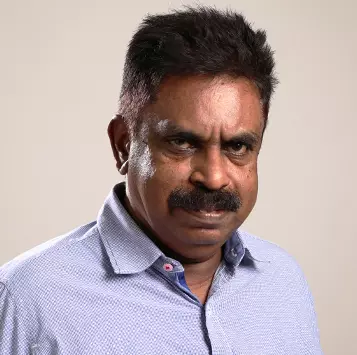Why should freebies be opposed?

A news story in a Tamil newspaper caused a flutter last week. Though the quivering was mostly felt in social media, even Chief Minister M K Stalin put up a message on that issue that was then snowballing into a controversy by taking to X (formerly Twitter) website. The news report that appeared in some editions of the particular newspaper was a critique of the recently launched Chief Minister’s Breakfast scheme. But when it got flayed in social media, diverse views were expressed on different forums. A particular view that continued to resonate in the discussions and arguments put forth was that giving ‘freebie’ is not an acceptable gesture. The suggestions went to the extent that the freebie culture made people become bums.
Are government schemes that provide anything free to people borne out of wrong and unsound policies? Does handout make people lazy? Hastening to answer these two questions that the debates on social media threw up and the criticism of some politicians raised in other forums, too, I would say ‘no.’ Giveaways, gifts, free lunches and compliments are part of human civilization and sloth among people cannot be blamed on such measures. Above all, another allegation that was put forth was that it was a bane of Tamil Nadu – for politicians to extend freebies in lieu of votes and the people to relish anything that falls on their lap free of cost. The underlying idea was that other societies do not have the idea of giving or getting anything free of cost and that they would like to work, earn and pay for what they needed.
To those who believe that the freebie culture is quintessential to Tamil society and a sign of social and economic backwardness by citing the midday meal scheme of former Chief Minister M G Ramachandran or the free television sets given by M Karunanidhi government or the latest breakfast scheme of M K Stalin, I would like to narrate a Swiss story. Hope some of you may be able to recall a certain proposal on which a referendum was held in 2016 in Switzerland. People were asked to vote if they approved of the government paying a minimum income of 2,500 Swiss Francs (a Swiss Franc is equal to Rs 93.35 in Indian currency) a month for every adult citizen and Swiss Franc 625 for every child.
The people who rejected the proposal formed 76.9 per cent of the voters, saying no, and 23.1 percent said yes, they wanted the money. Please do not try to jump saying see, see, the majority did not want freebies. The point that I am making is that the demand or rather the need for government support and assistance to underprivileged sections of society is there all over the world and that government, too, oblige them as it is their duty. Otherwise the Swiss government would not have conducted the referendum at all. So first let’s perish the thought that the idea came up in Tamil Nadu as politicians felt that they could garner votes by giving freebies.
In fact, the vote gathering efficacy of even the noon meal programme launched by MGR in 1982, which has been recognized by international charitable organizations as a pioneering effort in preventing hunger and also replicated in many countries, has not been established. The only election that MGR contested after the launch of his groundbreaking scheme was in 1984 when he was admitted to a hospital in the US. Prior to that Indira Gandhi was assassinated. So if the people returned the AIADMK to power again it is only attributed to the sympathy wave, generated by his own illness and the passing away of Indira Gandhi.
The noon-meal scheme did not give him any electoral mileage but nevertheless helped many children from poor families continue their studies against all odds since attending school lessened the burden of their parents, particularly mothers, in providing them lunch. There are several case studies to prove that the free lunch changed the lifestyle of entire families and individuals. But when the scheme was launched, the popular (middle class) perception was that it was flawed from the conception stage itself that almost every educated person was propounding. Even many self-styled economists did not approve of a free lunch for so many children every day.
But MGR clearly stated that he may not know economics but knew the pangs of hunger. So the scheme was born out of the heart and not the brain. It was a similar revelation that many children came to school without having breakfast and felt tired by the time the classes started that prompted Stalin, too, to come up with the scheme. Maybe as the detractors say that it would make their parents spurn their responsibility. But the children were suffering already because the parents lacked the wherewithal to be responsible towards the wellbeing of their children in the traditional (middle class) manner. In such a context, governmental intervention is the right thing to do as all developed and advanced societies have done.
In traditional Indian society, where inequities and deprivation abounded, charity was seen as a lofty ideal that privileged communities, families and individuals practiced to uplift the downtrodden. That included free feeding in temples, mutts, choultries and other places. So, looking down on free food could only be borne out of arrogance or ignorance. Any move by the government to help the needy needs to be appreciated.

